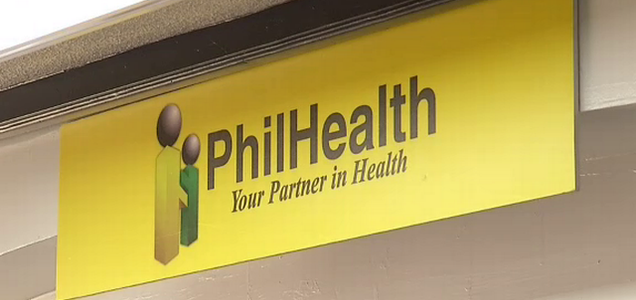
THE Supreme Court has warned health-care institutions to stop employing unscrupulous methods and schemes just to be able to avail of benefits from the Philippine Health Insurance Corp. (PhilHealth), the country’s national health insurer.
In a 13-page decision penned by Associate Justice Ramon Paul Hernando in the case of PhilHealth versus Urdaneta Sacred Heart Hospital (USHH), the Court’s Third Division noted that the current Covid-19 pandemic has “stretched to its limit” the financial resources of not only of PhilHealth, but of the entire nation as a whole.
Thus, the Court said, all sectors in the health industry should use the current health crisis as “a platform to better ourselves and an opportunity to craft and implement needed reforms in our public health-care system.”
“At this juncture, it’s well to remind accredited health-care institutions to deal with PhilHealth responsibly, honestly, and with integrity and refrain from employing unscrupulous methods like actively recruiting patients just so they could avail of PhilHealth benefits,” the SC said.
“Likewise, PhilHealth members and its officials are similarly exhorted to act with prudence and without any corrupt motives. Medical practitioners should not also allow themselves to be drawn into this unethical practice,” the Court added.
The SC issued the call after it reversed and set aside the Court of Appeal’s decision issued on March 21, 2014 and resolution dated September 17, 2014, which affirmed the ruling issued by the lower court directing PhilHealth to reimburse USHH the amount of P1.47 million plus legal interest from May 2010 as actual damages and P100,000 in attorney’s fees and P3,500 per hearing, as ad by way of appearance fees. The USHH filed the complaint against PhilHealth for its failure to pay or act upon its remaining 160 reimbursement claims for cataract treatments or surgeries underwent by its patients.
In upholding the lower court’s decision, the Appellate Court noted that contrary to PhilHealth’s contention, USHH’s claims, which involved surgeries or treatments done in December 2008 up to March 2009, were not performed during medical missions, as declared by PhilHealth’s own fact-finding verification report.
This prompted PhilHealth to elevate the issue before the SC, arguing that USHH clearly violated the laws, rules and regulations under the National Health Insurance Act of 1995 as the treatments and surgeries were actually performed in the course of medical missions. PhilHealth also pointed out that some of the claims of USHH were still subject for review, investigation and processing and that administrative cases had been filed against the USHH and several of its affiliated ophthalmologists for violation of the provisions of NHI Act of 1995, particularly for breach of warranties of accreditation, which involve the same issues in the instant case.
PhilHealth discovered that from December 2008 to March 2009, the period covered by the claim, USHH and several of its doctors conducted the screening of patients from several municipalities in Pangasinan.
It noted that USHH and its doctors employed seekers who went from one barangay to another, recruiting patients with cataract problems.
The petitioner added that the free cataract screenings and subsequent operations were conducted under suspicious conditions as to constitute as medical missions given that these procedures were performed pursuant to USHH’s Sagip Tanaw Project.
In ruling in favor of PhilHealth, the SC said based on its review of the merits of the case, the hospital and its personnel in the cataract screenings and subsequent operations or treatments had indirectly violated the PHIC’s rules prohibiting the conduct of cataract operations during medical missions.
“While a cataract screening is different from an operation, reason dictates that there would have been no surge in the number of cataract operations in USHH had there been no ‘free screening’ in the first place,” the SC noted.
“These findings are too significant to ignore. USHH did not specifically dispute these claims or even attempt to clarify why it suddenly had several cataract patients. USHH’s silence on this matter is highly suspect, which suggests that it indeed devised ways to circumvent the directives of the PHIC, specifically Circular Nos. 17 and 19, series of 2007,” it added.
PhilHealth Circular No. 17 expressly provides that “PhilHealth shall thereby discontinue the compensability of claims for cataract operations performed during medical missions and other recruitment schemes for cataract surgery.
On the other hand, Circular No. 19 states that pursuant to Circular No. 17, all claims for cataract surgeries shall not be compensated if performed during medical missions.
The Court said the hospital failed to disprove that it employed “seekers” in order to gather patients for the free cataract screening who in tum sought treatments in USHH by using their PhilHealth benefits, whether as members or beneficiaries.
“The present situation should inspire us to rise above ourselves and focus on our nation’s survival as a whole. The hardships brought about by the pandemic should not strip us of our humanity, or destroy or defeat our core values, but rather serve as a stimulus for positive changes within ourselves and in our nation,” the SC said.
The SC ruling came amid the impasse between PhilHealth and The Philippine Hospital Association (PHA) and the Private Hospitals Association of the Philippines (PHAP) over unpaid claims of some hospitals.
PhilHealth announced earlier that payments to hospitals and health-care practitioners are under investigation due to some “fraudulent claims, unethical acts and abuse of authority,” which the PHA and PHAP have vehemently opposed.

